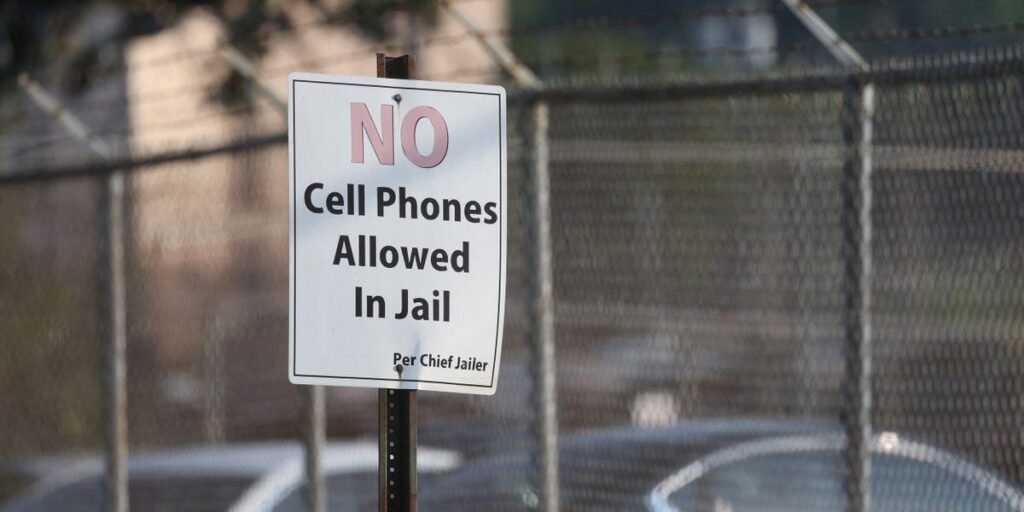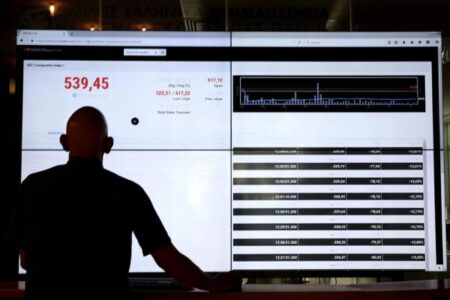For decades the correctional telecommunications industry has made up to $1.4 billion a year off of a customer base of incarcerated people who have had no other choice but to rely on their services to connect with loved ones. On Thursday, the Federal Communications Commission adopted new rules to limit what advocates have long called exploitation of the country’s poorest families.
In order for people in prison to use phone or video calls to chat with family, the person on the other line must pay. As of 2021, according to research by the Prison Policy Initiative, they’ve paid an average of $3 for a 15-minute phone call.
The FCC rules, which will go into effect next year, significantly decrease the amount of money inmates pay per minute to use the services, following years of activism in the criminal justice space.
“Capping the costs of all phone and video calls, as the FCC has done, will bring relief to millions of families, and other provisions in its order will prevent the exploitation of consumers through fees and deceptive pricing,” said Peter Wagner, Executive Director of the Prison Policy Initiative.
Correctional communications are largely dominated by three companies: Securus, ViaPath (formerly known as GTL), and ICSolutions. Worth Rises, a criminal justice advocacy organization, estimates they control nearly 90% of the entire industry. The new rules will force a business model change for correctional telecommunications companies as they contend with an estimated $500 million loss in revenue, according to Worth Rises.
A spokesperson for Viapath said the company remains stable as it evaluates the impact of the FCC’s decision. Securus and ICSolutions did not immediately respond to requests for comment.
Nearly 90% of the customer base for these telecommunications companies is composed of women of color and low-income families that have no other choice but to spend thousands of dollars each year on phone calls – one out of three families find themselves in debt as a result, according to data from Connect Families Now, a prison phone justice advocacy organization.
Only five states have passed legislation to make jail phone calls free, according to Prison Legal News. PBS reported that New York, Ohio, and Rhode Island have ended site commissions for telecommunication services.
The newest FCC ruling will be the most comprehensive reformation effort yet.
While prisoners have been paying as much as 21 cents a minute for calls in prisons and large jails, the new mandate will make sure nobody — in any correctional center — is paying more than 12 cents per minute.
The cost caps, though, vary by how large the jail or prison is. In prisons or large jails, for example, the cap is now 6 cents per minute, down from a previous cap of 14 cents. In medium and small jails, however, the cap will remain higher: 7 cents and 9 cents, respectively – down from 21 cents. Video calls, too, will be capped at 11 cents per minute. These caps are expected to be implemented between January and July.
The FCC rules will stop facilities from passing on other fees to the inmates and their families.
Calls between incarcerated people and the outside world are surveilled, and for years, the cost to monitor calls was passed on to the person who placed the call, according to Bianca Tylek, executive director of Worth Rises.
This forced families to pay for the service of having their own conversations monitored. Now the jails and prisons will have to pay for the services themselves.
The rules also eliminate “site commissions,” or kickbacks offered to correctional facilities to earn a percentage of the contract revenue from calls and force facilities to make “reasonable efforts” to return leftover call funds in the accounts of people released from incarceration before seizing it.
Correctional telecommunications will still profit from inmates
Worth Rises estimated the new rules will have the biggest impact on roughly 90% of jails that charge above what will be the capped rates going forward. Wanda Bertram, a communications strategist for the Prison Policy Initiative, said prisons tend to negotiate better contracts with telecommunications companies and, therefore, tend to have better rates for prisoners. Small jails, where incarcerated people are either sentenced or awaiting trial over lower-level offenses, tend to get the worst rates.
“So, while the FCC’s new rate caps will be felt by everyone paying money to prison and jail phone companies, the effects will be most momentous in local jails,” she said.
Still, for many advocates behind the decades-long reformation effort, phone and video call caps are only the first of other battles to be won. Companies will simply expand their earning potential by providing other forms of telecommunications, like texting or emailing, which are largely unregulated and lack governmental oversight.
“Even with the rates and such, the prison telecomms will remain immensely profitable, just not as much as they were,” said Paul Wright, Director of the Human Rights Defense Center. “These companies will continue trying to make up their lost or limited profits by exploiting these families.”
Read the full article here
















